
John Davis Long was an American lawyer, politician, and writer from Massachusetts. He was the 32nd governor of Massachusetts, serving from 1880 to 1883. He later served as the Secretary of the Navy from 1897 to 1902, a period that included the primarily naval Spanish–American War.

Thomas Talbot was an American textile mill owner and politician from Massachusetts, United States. Talbot ran a major textile business, involving chemical dyeworks and the weaving of fabric, in Billerica that was a major local employer. As a Republican, he served in the state legislature, on the Massachusetts Governor's Council, and as the 29th lieutenant governor before serving for one partial term as acting governor of Massachusetts, and later for one full term as the 31st governor.
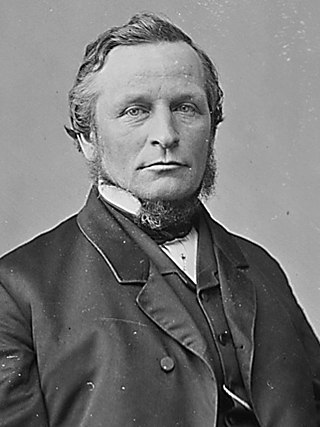
William Barrett Washburn was an American businessman and politician from Massachusetts. Washburn served several terms in the United States House of Representatives (1863–71) and as the 28th governor of Massachusetts from 1872 to 1874, when he won election to the United States Senate in a special election to succeed the recently deceased Charles Sumner. A moderate Republican, Washburn only partially supported the Radical Republican agenda during the American Civil War and the Reconstruction Era that followed.

William Gaston was a lawyer and politician from Massachusetts. A Democrat, he was the first member of that party to serve as Governor of Massachusetts (1875–1876) after the American Civil War. He was a successful trial lawyer and politically conservative Democrat, who won election as governor after his opponent, Thomas Talbot, vetoed legislation to relax alcohol controls.

John Quincy Adams Brackett was an American lawyer and politician from Massachusetts. A Republican and temperance advocate, he served one term as the 36th governor of Massachusetts, from 1890 to 1891. Born in New Hampshire and educated at Harvard, he practiced law in Boston before entering politics.
The Massachusetts Republican Party (MassGOP) is the Massachusetts branch of the U.S. Republican Party.
The 1887 United States Senate election in Massachusetts was held during January 1887. Republican incumbent Henry L. Dawes was re-elected to a third term over opposition from within his own party, led by former Governor John Davis Long.
The 1877 United States Senate election in Massachusetts was held in January 1877. Incumbent Republican Senator George S. Boutwell, who had won a special election for the remainder of Henry Wilson's term, was defeated by reformist U.S. Representative George Frisbie Hoar.
The 1883 United States Senate election in Massachusetts was held in January 1883. Incumbent Republican Senator George Frisbie Hoar was re-elected to a second term in office despite a serious challenge from Democrats and members of his own party.
The 1901 United States Senate election in Massachusetts was held in January 1901. Incumbent Republican Senator George Frisbie Hoar was re-elected to a fifth term in office.
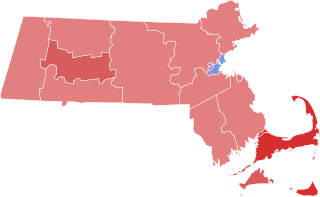
The 1876 Massachusetts gubernatorial election was held on November 7. Incumbent Republican Governor Alexander H. Rice was re-elected to a second term in office over former Minister to Great Britain Charles F. Adams.

The 1877 Massachusetts gubernatorial election was held on November 6. Incumbent Republican Governor Alexander H. Rice was re-elected to a third term in office over former Governor William Gaston.

The 1878 Massachusetts gubernatorial election was held on November 5. Former acting Governor Thomas Talbot, a Republican, defeated Benjamin Butler, who ran as an independent Greenback candidate with Democratic support. Butler's supporters secured a majority of delegates to the Democratic state convention, but his nomination was rejected by the state party committee after his supporters used violent tactics to exclude anti-Butler delegates from the convention hall.

The 1926 Massachusetts gubernatorial election was held on November 2, 1926.
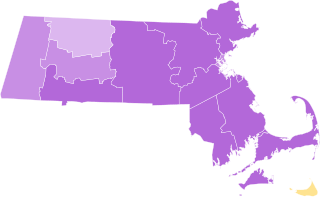
The 1854 Massachusetts gubernatorial election was held on November 15. American Party candidate Henry J. Gardner was elected to his first term as governor, defeating incumbent Whig Governor Emory Washburn.

The 1873 Massachusetts gubernatorial election was held on November 4, 1873. Republican Governor William B. Washburn was re-elected to a third term in office over Democrat William Gaston.
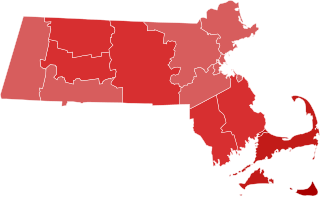
The 1872 Massachusetts gubernatorial election was held on November 5, 1872. Republican governor William B. Washburn was re-elected to a second term in office over businessman Francis W. Bird, a Liberal Republican nominated with support of the Democratic Party.
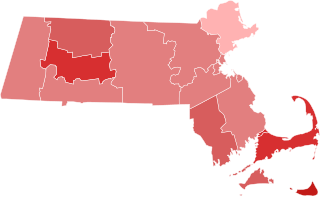
The 1871 Massachusetts gubernatorial election was held on November 7, 1871. Incumbent Republican Governor William Claflin did not run for a fourth term in office. He was succeeded by Republican U.S. Representative William B. Washburn, who defeated Democrat John Quincy Adams II.

The 1867 Massachusetts gubernatorial election was held on November 5.
The 1853–54 Massachusetts gubernatorial election consisted of an initial popular held on November 14, 1853, which was followed by a legislative vote that was conducted on January 9, 1854, which elected Whig Party nominee Emory Washburn. The ultimate task of electing the governor had been placed before the Massachusetts General Court because no candidate received the majority of the vote required for a candidate to be elected through the popular election.

















